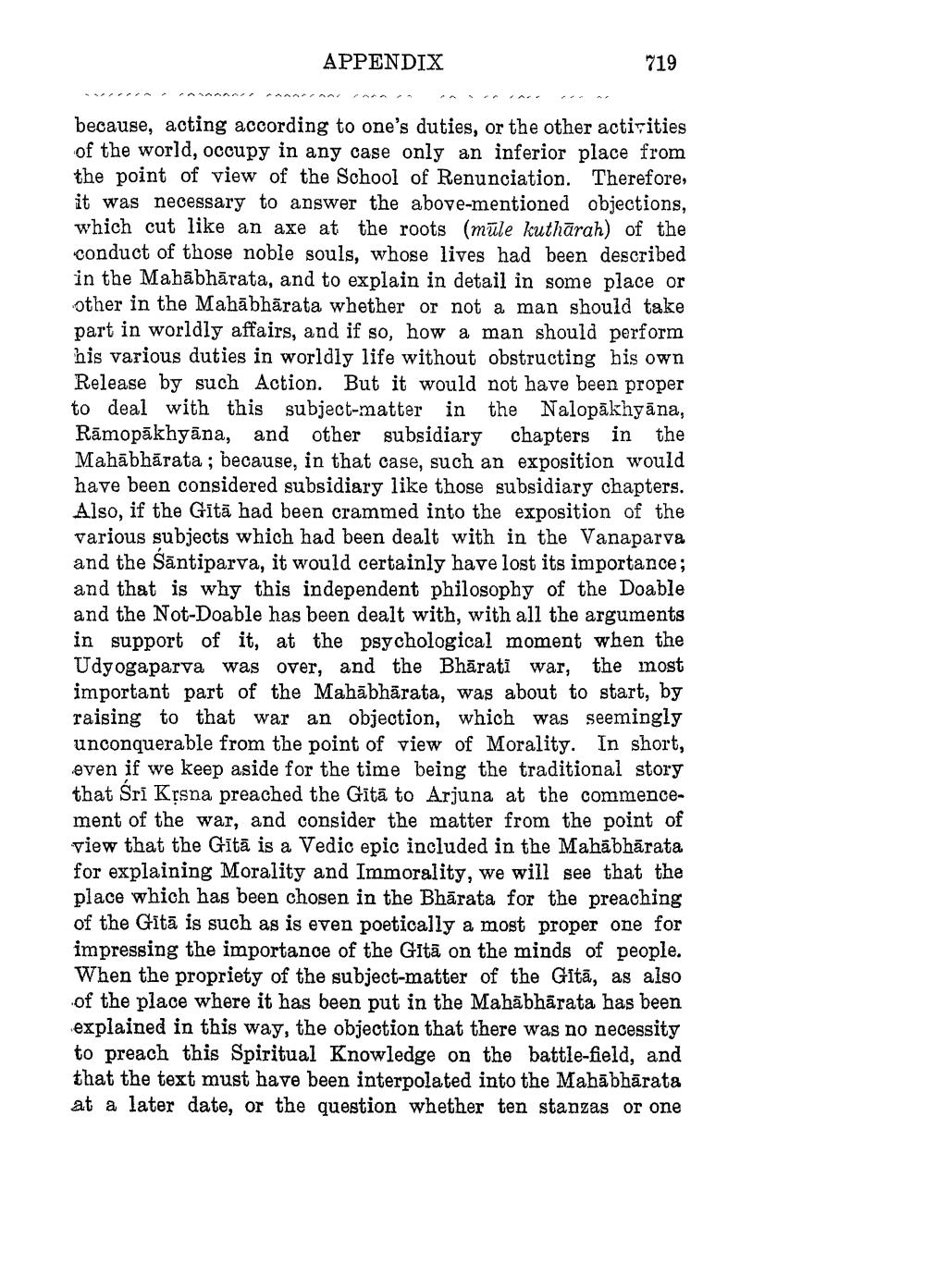________________
...
^^^^^^
APPENDIX
てくてくてく
719
because, acting according to one's duties, or the other activities of the world, occupy in any case only an inferior place from the point of view of the School of Renunciation. Therefore, it was necessary to answer the above-mentioned objections, which cut like an axe at the roots (müle kutharah) of the conduct of those noble souls, whose lives had been described in the Mahabharata, and to explain in detail in some place or other in the Mahabharata whether or not a man should take part in worldly affairs, and if so, how a man should perform his various duties in worldly life without obstructing his own Release by such Action. But it would not have been proper to deal with this subject-matter in the Nalopakhyāna, Rāmopākhyāna, and other subsidiary chapters in the Mahabharata; because, in that case, such an exposition would have been considered subsidiary like those subsidiary chapters. Also, if the Gitä had been crammed into the exposition of the various subjects which had been dealt with in the Vanaparva and the Santiparva, it would certainly have lost its importance; and that is why this independent philosophy of the Doable and the Not-Doable has been dealt with, with all the arguments in support of it, at the psychological moment when the Udyogaparva was over, and the Bharati war, the most important part of the Mahabharata, was about to start, by raising to that war an objection, an objection, which was seemingly unconquerable from the point of view of Morality. In short, even if we keep aside for the time being the traditional story that Sri Krsna preached the Gita to Arjuna at the commencement of the war, and consider the matter from the point of view that the Gita is a Vedic epic included in the Mahabharata for explaining Morality and Immorality, we will see that the place which has been chosen in the Bharata for the preaching of the Gita is such as is even poetically a most proper one for impressing the importance of the Gita on the minds of people. When the propriety of the subject-matter of the Gita, as also of the place where it has been put in the Mahabharata has been explained in this way, the objection that there was no necessity to preach this Spiritual Knowledge on the battle-field, and that the text must have been interpolated into the Mahabharata at a later date, or the question whether ten stanzas or one




